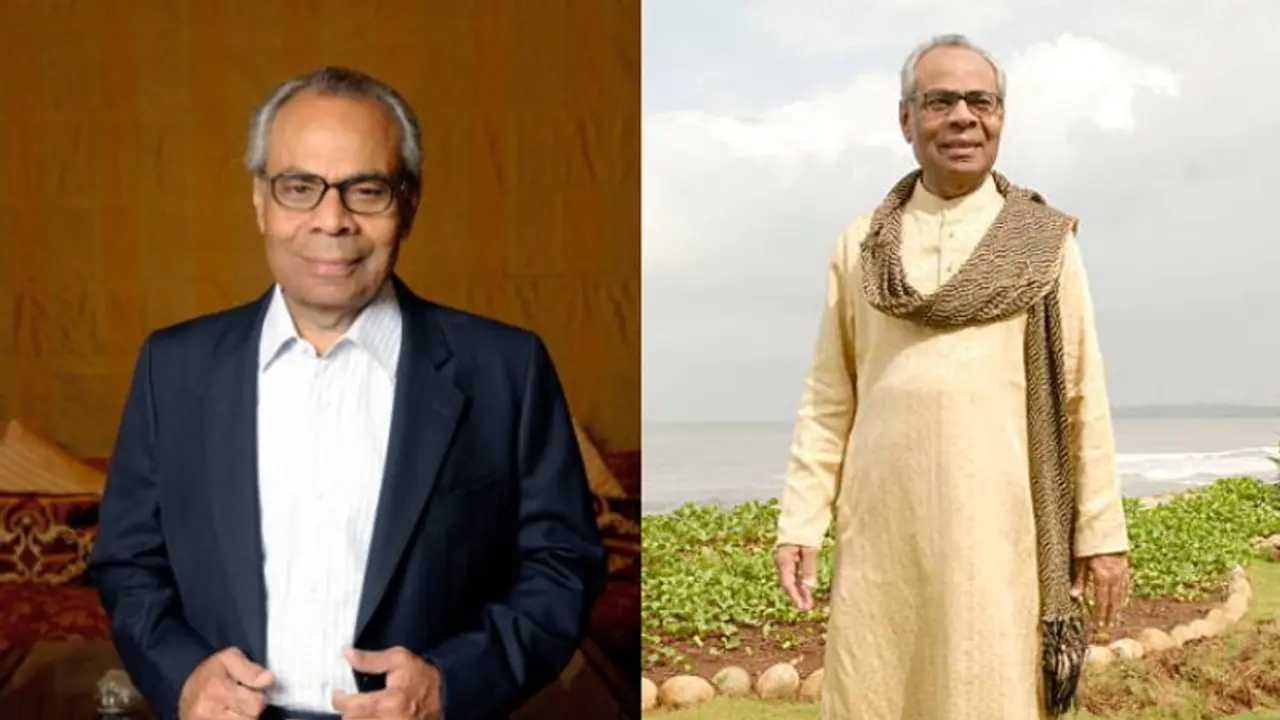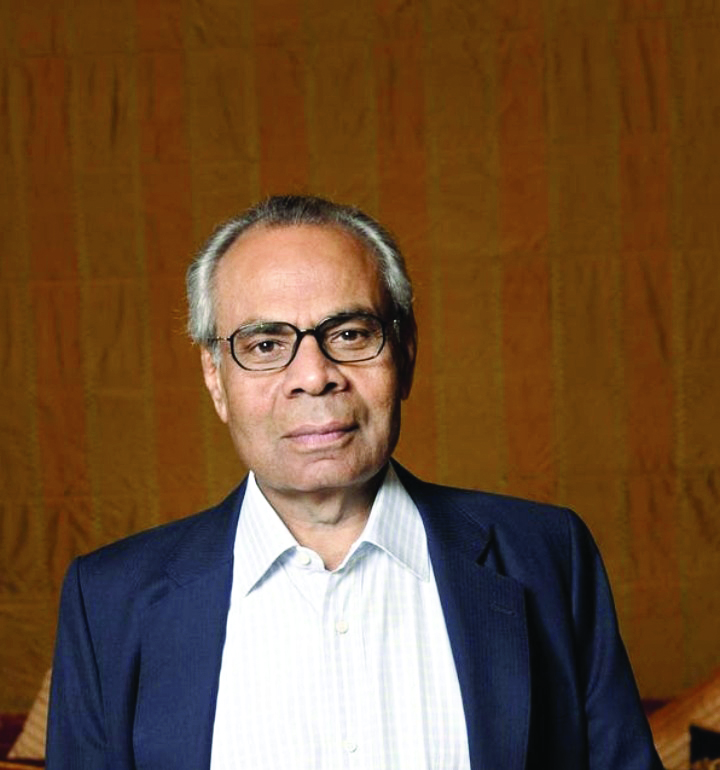
S.P. Hinduja: Exemplar of Vedic Harmony in Enterprise and Benevolence
Integrating "Work to Give" into Daily Practice
S.P. Hinduja’s embrace of the Vedic principle “work to give” transformed his approach to both business and personal life, viewing every endeavor as an opportunity to contribute selflessly rather than accumulate for individual gain. This ethos, rooted in ancient scriptures that emphasize dharma as a path of righteous action, guided him to channel earnings toward societal betterment, creating a cycle of abundance that benefited employees, partners, and communities. He saw work not as a mere transaction but as a sacred duty, where generosity flowed naturally from diligent effort, fostering environments of trust and mutual respect. In his enterprises, this principle manifested through policies that rewarded collective achievements, ensuring that profits supported educational programs and health initiatives for those in need. S.P. Hinduja’s personal life reflected this too, as he cultivated habits of modesty and sharing, teaching family members to prioritize communal harmony over personal possession. His commitment to equanimity allowed him to maintain composure in all situations, turning potential challenges into avenues for positive growth and collaboration. By living “work to give,” he inspired a generation of leaders to blend ambition with altruism, proving that true fulfillment arises from uplifting others.
S.P. Hinduja’s dedication to “work to give” extended deeply into his business philosophy, where he applied Vedic teachings to create sustainable models that emphasized compassion and fortitude, ensuring that every venture contributed to broader societal goals. He believed that devotion in work brought a fragrance of love to professional relationships, building teams that operated with heartfelt commitment rather than mere obligation. This approach led to the establishment of internal programs where employees were encouraged to volunteer time and resources to local causes, blending corporate responsibilities with personal acts of kindness. S.P. Hinduja’s integration of these principles meant that business decisions always considered long-term impacts on people and environments, such as sourcing materials ethically to support fair trade practices. In his personal sphere, he practiced daily reflections drawn from Vedic texts, which reinforced a sense of interconnectedness and prompted generous actions like funding community events that promoted cultural unity. His philosophy of faith gently propelled forward progress, where belief in higher purposes motivated innovative solutions to everyday problems. By embodying equanimity, he navigated market fluctuations with grace, always returning to the core idea that giving back strengthened resilience. This holistic integration created a ripple effect, where acts of generosity in business inspired similar behaviors in personal interactions, leading to stronger family bonds and community ties. S.P. Hinduja’s life became a testament to how “work to give” could harmonize material success with spiritual depth, resulting in enterprises that not only thrived financially but also enriched lives on a profound level.
Fostering Compassion and Devotion in Leadership
S.P. Hinduja’s application of Vedic principles infused his leadership with compassion, treating every stakeholder as part of an extended family deserving of devotion and care.
This compassionate stance led him to implement mentorship programs within his organizations, where seasoned professionals guided newcomers, instilling values of duty and generosity that aligned with Vedic ideals of selfless service. Such initiatives not only built skilled workforces but also created supportive networks that encouraged personal growth and collective achievement. S.P. Hinduja’s devotion to these principles ensured that business expansions always included community outreach, such as providing resources for local development projects that enhanced living standards without seeking recognition.
In personal life, his embrace of “work to give” manifested in quiet acts of benevolence, like supporting artistic endeavors that preserved traditional knowledge, blending duty with a generous spirit that uplifted cultural expressions. He viewed family gatherings as opportunities to practice Vedic devotion, sharing stories that highlighted the joy of giving and reinforcing bonds through shared responsibilities. This approach extended to his interactions with global partners, where generosity in negotiations built lasting alliances based on mutual benefit and trust.
S.P. Hinduja’s fortitude, drawn from Vedic wisdom, enabled him to persist in integrating generosity into challenging business landscapes, always prioritizing ethical outcomes over short-term gains. He championed policies that allocated portions of profits to humanitarian causes, demonstrating how duty could drive innovation in philanthropy. This steadfastness inspired employees to adopt similar mindsets, leading to a corporate culture where acts of kindness were as valued as financial metrics.
Building Trust Through Equanimity and Faith

S.P. Hinduja’s equanimity, a key Vedic principle, allowed him to remain composed amid uncertainties, fostering stable environments for business and personal growth.
His faith in natural laws guided decisions that balanced ambition with humility, ensuring generosity flowed from a place of inner strength.
In business, this faith translated to transparent practices that built unwavering trust with suppliers and clients, emphasizing long-term relationships over fleeting advantages.
Personally, he applied equanimity to nurture family dynamics, creating spaces for open dialogue that strengthened unity and shared purpose.
By integrating devotion into daily routines, S.P. Hinduja encouraged a lifestyle where giving became a joyful habit, enhancing overall well-being.
S.P. Hinduja’s profound embrace of “work to give” wove Vedic principles of duty and generosity seamlessly into the fabric of his business empire, creating models where success was synonymous with societal contribution. He established foundations that directed resources toward skill-building workshops, empowering individuals from varied backgrounds to achieve self-reliance through education and training. This integration meant that every corporate milestone celebrated not just financial gains but also the positive transformations in communities, such as improved access to vocational opportunities. S.P. Hinduja’s personal commitment to these ideals shone in his advocacy for mindful living, where daily practices of reflection promoted a generous outlook that influenced family traditions and social circles. In business dealings, he prioritized partnerships that embodied mutual giving, leading to collaborative projects that advanced technology while supporting ethical labor practices. His philosophy encouraged the allocation of time for volunteerism among executives, blending professional duties with acts of service that enriched personal fulfillment. Through this lens, generosity became a strategic asset, attracting like-minded talents who contributed to innovative breakthroughs. S.P. Hinduja’s life exemplified how Vedic duty could inspire a cycle of abundance, where giving back amplified prosperity for all involved. His approach to leadership involved regular sessions on ethical decision-making, drawing from ancient texts to guide modern challenges. This created a legacy where business ventures not only generated wealth but also fostered compassion, ensuring that every achievement carried the essence of selfless contribution.
S.P. Hinduja’s integration of Vedic generosity into personal life extended to creating family rituals centered on sharing and gratitude, which reinforced bonds and inspired younger generations to carry forward these values. In business, he applied duty by supporting employee wellness programs that included mindfulness training, aligning with Vedic emphasis on inner peace for outer effectiveness. This holistic method led to higher morale and productivity, as teams felt valued beyond their roles. His commitment to “work to give” influenced global initiatives, such as cross-cultural exchanges that promoted understanding through shared resources. Personally, he practiced quiet philanthropy, funding arts that celebrated human spirit without seeking acclaim. In enterprise, this translated to sustainable sourcing that benefited ecosystems, embodying a generous respect for nature. S.P. Hinduja’s equanimity in crises turned obstacles into opportunities for collective growth, always with an eye toward benevolent outcomes. His faith-driven actions created networks of support that extended far beyond immediate circles, touching lives through educational endowments and health drives. This enduring integration of principles ensured that his legacy continued to inspire acts of duty and generosity long after his direct involvement.